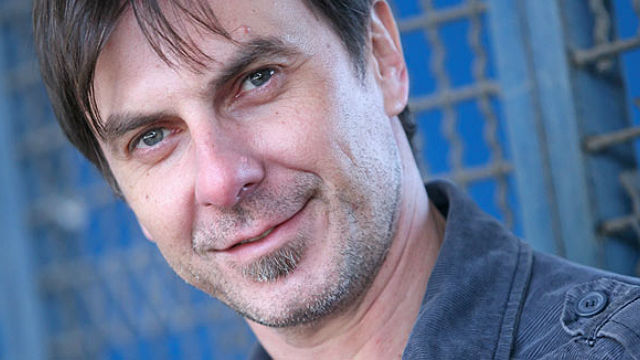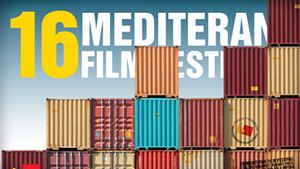
28/08/2015
On the map of festivals MFF is among the most important ones
Seven feature documentaries are in the competition of the 16th Mediterranean Film Festival. We talked about these seven, about the documentary film festival in Široki and the festivals in the region, about cinematography in our area, previous and future projects to Boris T. Matić, producer, founder and the first director of Motovun Film Festival, leading man of Zagreb Film Festival and this year’s member of the MFF jury. “I must admit that I have enjoyed watching films from the competition of MFF. The selection is excellent, with various themes and directors’ approach. I have to thank the selectors for the pleasure of taking part in the jury with such a good program”, said Matić, whose first visit to this Festival was several years ago with the team of the production house ‘Propeler’, when their film ‘Kenjac’ was screened in the off program.
As someone who has been occupied with film for twenty years, and with festivals for the past 15 years, Matić points out that MFF rates as the one of the most important on the festival ‘map’ and that it is extremely important to have a festival like this one in BH.
“After my first visit to this Festival, I realized that the entire team does their job extremely well, and I liked your town and the people I met very much. On the other hand I think that it is very important to have a festival like this one in BH, and considering that I am well acquainted with the state of the festivals in the region, I dare to say that MFF is among the few most important documentary film festivals. I have recently met two authors that had the opportunity to take part in the festival with their films and both shared the same theory”, said Matić.
Matić confirms that the size of a place has no influence on the size of a festival with his successful organization of one festival in the capital and the other which has made a small place famous.
“The size of a place does not matter, what matters are the budget and the infrastructure. Cannes is ten times smaller than Zagreb and about two times bigger than Široki Brijeg, and again it has the biggest festival in the world. Very often, it is better to have a festival in a small place where everything is concentrated on this event”, says Matić who believes that the role of the festivals is promotion of quality films, growth of the audience and meetings of professionals, mutually and with the audience, and all that for the purpose of further work on production and promotion of the art of film.
For the purpose of the promotion of quality Matić started the art cinema Europa, which, as he explains, has the role of ‘education’ of the movie audience and which, regardless of the fact that the network of cinemas and the conditions of the present day distribution and screenings cannot show all the quality films created in the world, is trying to bring at least some of them.
“In the moments when I was starting with Motovun, and a few years after with ZagrebDox, these were exclusively the places where one could see different films from those in multiplexes. In the meantime, in the past 10 years, the situation has changed and today in Croatia we have almost 60 various festivals and reviews”, says the leader of the production house ‘Propeler’, which produced some of the greatest hit films in this region (Donkey, All for Free, The Border Post...). Propeler also produced the first Croatian independent film – ‘Mondo Bobo’.
When asked about the difference in working on film in the past and today Matić says that Croatia finally has something that we can call a serious cinematography.
“In the past few years, since we have HAVC in Croatia, the situation has considerably changed. I think that Croatia finally has something that we can call a serious cinematography. There are developments of scripts and projects, precise times of tenders for the production of all home film forms and minority co-productions. There is the system, which has problems sometimes because we are talking about a young institution that subsists and works in a small country affected by crisis. I hope that HAVC will survive and stay the strongest film institution with the engagement of all of us working in film industry”, explains Matić and adds that even though there are constant interfering in the HAVC’s independence, the politics does not interfere in decisions and future of film production, and the situation in Croatia is that the filmmakers still decide on the future of film.
At the mention of the film in Croatia Matić agrees that some of the first reactions are that it is gloomy, hard, dark, but he also says that there has been a glimpse of brightness lately, which is also contributed by his current project, a family comedy by Antonio Nuić – ‘Life is a Trumpet’.
“It is very hard and expensive to make a genre film. Within the scope of the interests of our authors, and in line with the budgets the productions have at their disposal, the authors most often turn to some daily topics, and that sometimes becomes gloomy. Also, the time we are living in is not a very optimistic period. However, we have to say that in the past few years we have films that are not so gloomy”, says the producer whose film ‘Zagreb Stories vol. 3’ had its premiere at the festival in Pula and Nuić’s comedy will come to cinemas in the beginning of December.
Although he is more engaged in feature film, Matić does not hide his love for documentary film and when asked about the first association to the Festival of documentary film in Široki Brijeg he simply answers – the sun.
